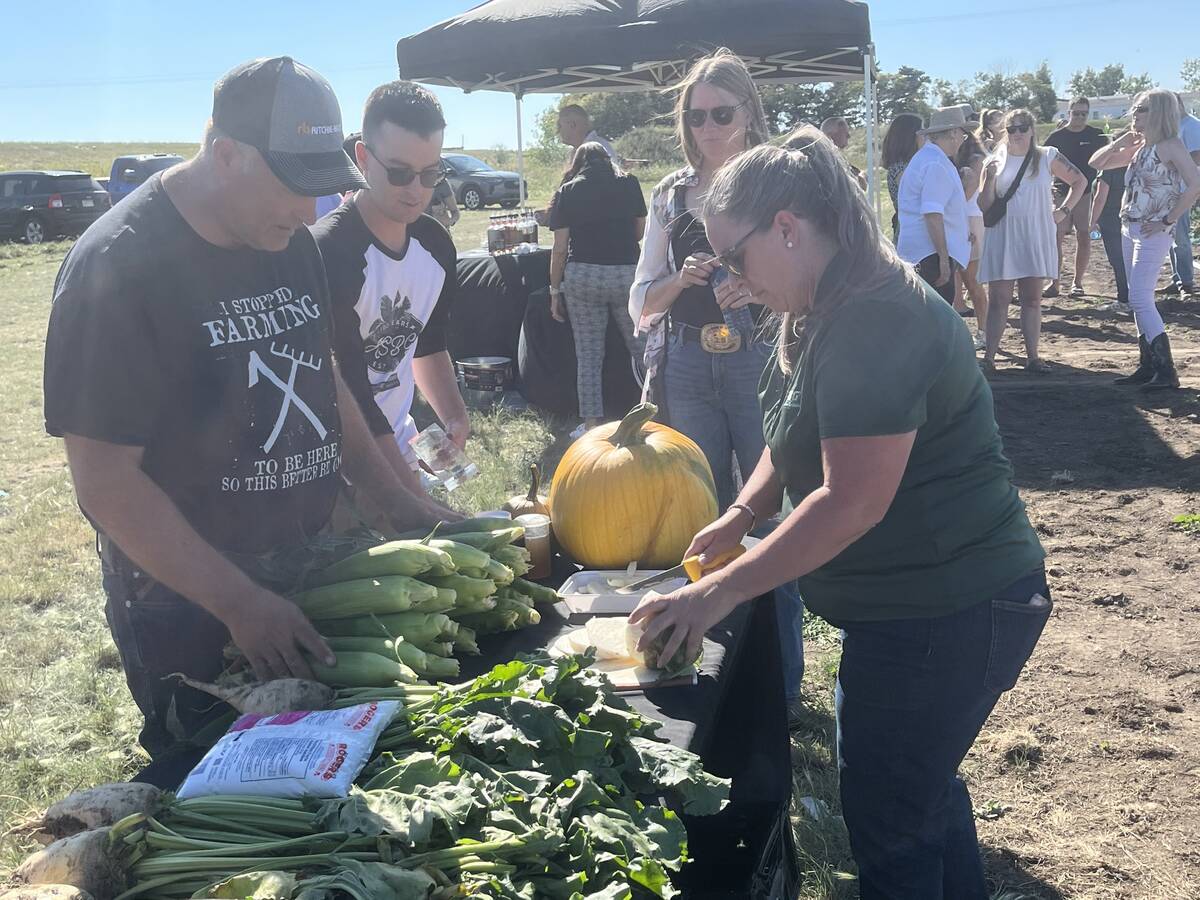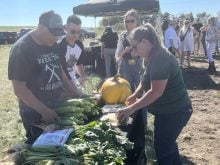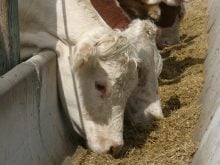While last season’s prairie flax farmers’ forecast for sulfentrazone looked good, ill winds blew in from the East.
The Group 14 herbicide that was approved in 2008 for chickpeas in Saskatchewan only failed to make the grade with federal officials in Ottawa when it came to flax.
Sulfentrazone provides control of kochia and red root pigweed in most soils other than those with organic matter exceeding six percent, such as the Melfort, Sask., area.
Flax producers have few options when it comes to controlling broadleaf weeds.
Read Also

Alberta farm lives up to corn capital reputation
Farm to Table Tour highlighting to consumers where their food comes from features Molnar Farms which grows a large variety of market fruits and vegetables including corn, with Taber being known as the Corn Capital of Canada.
Control of those weeds, especially kochia, is a significant challenge. Kochia germinates with rainfall after the crop is up, then rapidly dominates the field by growing taller than the flax. It also competes for moisture and nutrients.
Without a post-emergent product, yields in flax drop dramatically when faced with kochia pressure.
Board members with Saskflax told their association that they are holding out hope for spring 2009 registration of FMC’s Authority, a sulfentrazone herbicide, even though the federal Pesticide Management Regulatory Agency denied its release for 2008.
Saskflax said it felt confident that full Canadian registration was inevitable in 2008 after 2007’s single season registration for flax, plus strong support from Saskatchewan’s provincial government and 40 years of American registration of the product.
The high confidence meant there was no individual from the industry to support the application for full registration at the meeting last spring.
Allen Kuhlmann of Saskflax said the association would send someone to Ottawa for the 2009 registration meeting where sulfentrazone will be examined.
Agriculture Canada researcher Eric Johnson from Scott, Sask., isn’t as optimistic about the product’s availability this season.
His research supports the registration, but in discussions as recent as the first week of January, he said federal officials in Ottawa are still asking for more data.
They want to know more about the efficacy of the product in controlling target weeds in various soil types and under differing weather conditions, its threat to prairie ground water and other details, said Johnson.
“That will require more input and research (generated by) flax growers.”
Recent research at the University of Saskatchewan shows the product poses little threat to ground water, said Johnson.
Manitoba flax growers and their provincial government also support release of the chemical. Alberta is seeking to have Authority made available for chickpeas for 2009.














